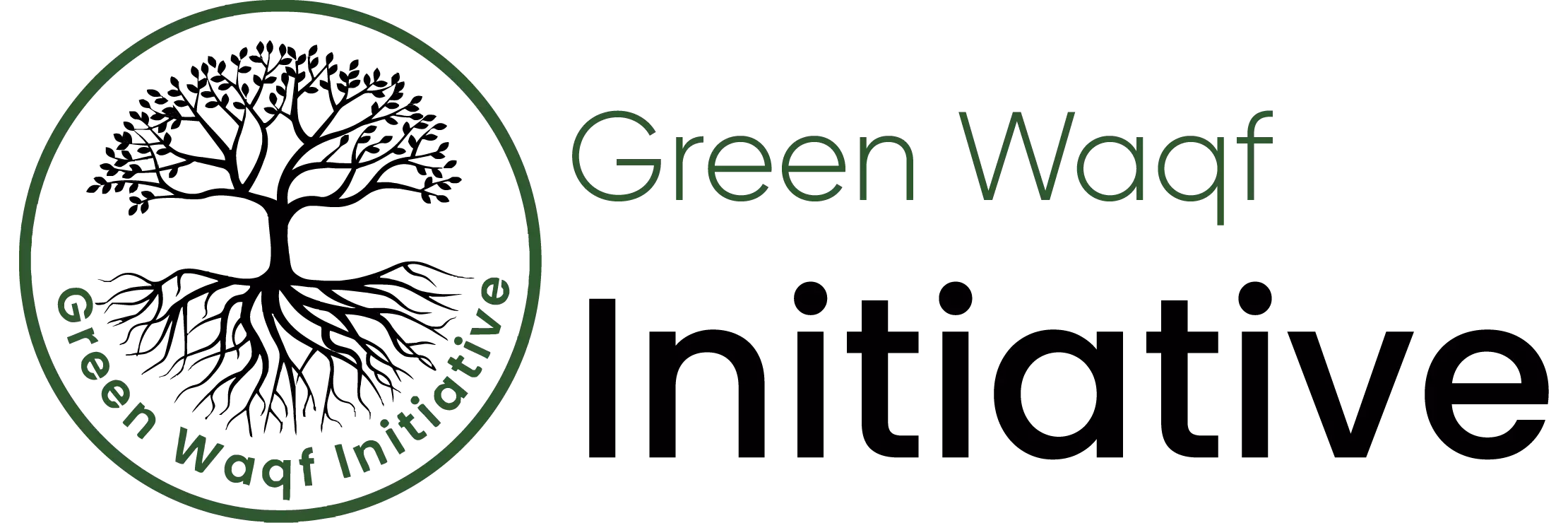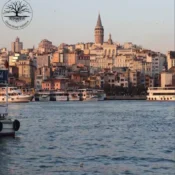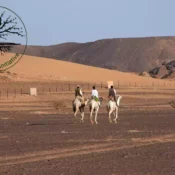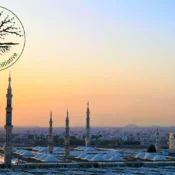
Mauritania Environmental Profile
These environmental profiles were produced as part of the Green Waqf Initiative by the
Islamic Chamber of Commerce, Industry and Agriculture (ICCIA). ICCIA believes that
the Islamic concept of Waqf can be used as a social financing mechanism to combat
climate change. Through Waqf, the land is decommodified; therefore, it can be used
only for specific purposes defined by the owner. These purposes can include
reforestation, land revitalization and research centers, among others.
This environmental profile has been developed to assess the ecological situation in
Mauritania and is part of a series that covers all ICCIA member countries. These
profiles are meant to be used as a source to assist in policy dialogue, stakeholder
engagement, and strategic planning and to help educate and raise awareness about the
social, cultural and economic risks associated with climate change. The profiles
provide relevant information on pertinent public and private sector policies and
programmes and the country's adaptation priorities and potentials.
Mauritania Environment Profile Team
Author: Fatima Faisal
Editor: Safia Hussain
Table of Contents
- Mauritania Environment Profile
- Mauritania Environment Profile Team
- Introduction
- About ICCIA
- About the environmental profile
- Section 1: Country Overview
- General Overview of Mauritania
- Climate Change Risks
- Mauritania’s commitment towards climate change
- National Adaptation Program of Action (NAPA MRDE, 2004)
- Second National Communication
- National Environment Action Plan (PANE)
- Current Adaptation Action
- Reasons for low performance on climate change
- Section 2: Sector-wise climate change causes and effects
- Water Resources
- Agriculture
- Infrastructure
- Conclusion & Recommendations
Introduction
About ICCIA
The Islamic Chamber of Commerce, Industry, and Agriculture, an institution affiliated with the
Organization of Islamic Corporation (OIC), aims to strengthen collaboration in the fields of trade,
commerce, information technology, banking, insurance, shipping, joint venture, and many others
within member countries.
ICCIA is the sole representative of the private sector in 57 Islamic member countries and primarily
focuses on creating a knowledge platform for the private sector of the Muslim countries to connect
and learn. It provides visibility to the star performers for future growth and access to new markets.
Additionally, it lays out policy recommendations to enable a private-sector-friendly business
environment in policies, processes, paperwork, and payment system integration, to name a few.
Finally, ICCIA plays an integral role in promoting member country products and increasing access
between home and foreign markets.
About the environmental profile
Several experts claim that insufficient climate control policies have become a 'very serious' concern
and have been significantly harming a considerable proportion of the world's population.1 Some top
reasons behind climate change include heat-trapping greenhouse gasses, deforestation, use of heavy
machinery, powering buildings, and cutting down on farming livestock.
ICCIA's recent initiative focuses on promoting environmentally friendly and sustainable practices in
member countries to enhance societal impact, minimize waste, and improve living standards.
Mauritania is one of the most severely hit countries due to climate change. The country suffers from
several natural setbacksincluding droughts, desertification, deforestation, bush fires, and multiform
pollution in its urban sectors.2
ICCIA's climate change initiative aims toward stabilizing
sustainability, promoting ecological practices, and improving quality of life.
Section 1: Country Overview
General Overview of Mauritania
Mauritania is a majorly desert country housing an Arab-Berber population in the north and black
Africans in the south. Situated at the crossroads of the Maghreb region and sub-Saharan Africa,
Mauritania is one of Africa's newest oil producers with a largely nomadic population that is slowly
witnessing a trend towards urbanization and sedentarization.
The country is spread over 1.04 million sq km (almost twice the size of Spain), consists of a striking
3.6 million population, and is rich in mineral resources, especially iron and steel.3 Mauritania is also
viewed by the west as a valuable ally in the fight against Islamist militancy in the Sahel region. Onefourth of the Mauritanian population resides in Nouakchott, the country's capital and largest city,
situated between the dunes and the ocean. Spoken languages include Arabic, French, Wolof, and
others.
Despite Mauritania's rich mineral base, fascinating wildlife, extensive train bases, and ship
graveyards, the country suffers from a persistent inter-ethnic and border dispute that has been the
cause of rising tensions in the country ever since its independence.
Climate Change Risks
Climate change is a rising risk in Mauritania. The country is at risk of severe hydrometeorological disasters and other natural calamities because of more intense temperatures and prolonged heat.
The United Nations (UN) marked climate change as one of the most pressing concerns worldwide and confirmed that if left unattended, climate change can lead to significant rises in greenhouse gas concentrations, resulting in hotter temperatures, increased heat-related illnesses, and increased difficulties in working outdoors.
There is almost no tropical forest and no rainforest in Mauritania.4 Environmental deterioration is a significant issue in the country. Subsistence farming, grazing land clearing for animals, and iron ore mining are the primary culprits of deforestation. Further, soil erosion, increased desertification, and protracted drought too are effects of forest clearance. Tormented by its crippling foreign debt, it appears more likely than ever that Mauritania will soon run out of revenue options and set afoot in an entangled debt trap.5
Flash flooding is considered highly likely in southern Mauritania due to heavy rainfall and increased
aridity.6 Moreover, the country is at an increased risk of severe water scarcity because of the
projected increased variability of runoff and river flows, increased temperatures, and increased
competition over reduced water resources. Not only that, but Mauritania is also suspected of coastal
flooding due to rise in sea level and increased vulnerability since most of its population reside along
coastal areas.7
The graph below shows the projected sea level rise of coastal Mauritania from 2008 till 2098.
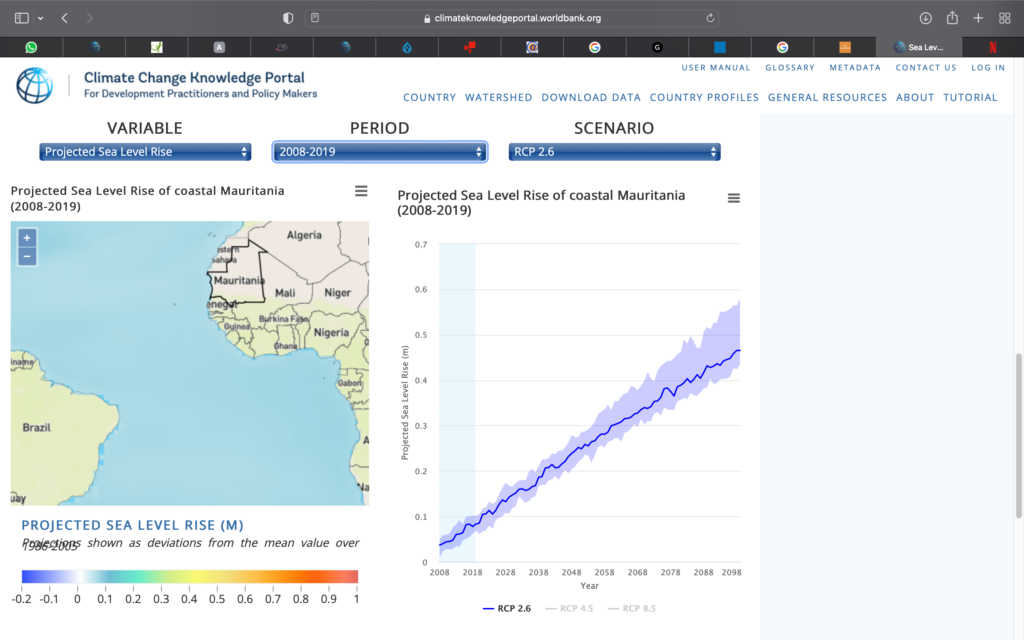
It is evident from the graph above that Mauritania is at an exponentially high risk of climate change
calamities, mainly due to sea level increments. The global sea level has risen roughly 210-240 mm
since 1880, and the current annual rise equates to approximately 3mm per year.9 Most of these
regional variations result from natural variabilities in winds and ocean currents. However, it is crucial
to note that other local factors also play a significant role here. For example, uplift of the ground,
water extractions leading to alterations in water tables, and local erosions also contribute to the
variations. High variable rainfall has been a primary reason behind Mauritania's limited agriculture
production, affecting millions of people across the country. Further, it has been reported that wind
erosions are responsible for destroying more than 15 kilometers of the coastal bar.10
Mauritania's commitment towards climate change
Mauritania has been successful in implementing several climate change policies. However, each
policy's risk and effects remain debatable to date.
National Adaptation Program of Action (NAPA MRDE, 2004)
Regulated by the Ministry of Rural Development and Environment (Department of the Environment
and Department of the Environment Project) and released in 2004, the NAPA identifies regional and
national climate change impacts in Mauritania. It addresses climate change adaptation measures
including 27 priority interventions.11
Second National Communication
The Second National Communication was released in 2008 by the Ministry of Rural Development
and Environment. It highlights and updates the efforts Mauritania is taking to combat climate change
as well as plans to take in support of the UNFCC.
National Environment Action Plan (PANE)
PANE policies were proposed by the government of Mauritania but were never adopted. The primary
objective was to link environmental conditions with rising poverty in the country. One particular axe of PANE was designated to climate change which included encouraging agricultural system
adaptations and coastal zone protection.12
Current Adaptation Action
A few adaptation action programs are currently underway in Mauritania. Most of these focus on
addressing freshwater and agricultural vulnerability issues. Some of these adaptation actions include:
- Support to the adaptation of vulnerable agricultural production system implemented by
International Fund for Agricultural Development (IFAD) and funded by Least Developing
Countries Fund (LDCF). - Adaptation to Climate Change: Responding to coastline change and its human dimensions in
West Africa through integrated coastal area management, implemented by UNDP and funded
by Global Environment Facility (GEF) trust fund.13 - Interdisciplinary and participative research on interaction between ecosystems, climate and
societies in West Africa, implemented by inter-institutional research agency for development
and funded by France's foreign affairs ministry. - Regional coordination on natural resources management and capacity building, implemented
by Arab Water Council (AWC) and funded by GEF trust fund.
Reasons for low performance on climate change
As is evident from the information mentioned above, Mauritania has not performed well on tackling
climate change concern, even though it is significantly affecting the country's overall performance.
There are several reasons behind Mauritania's laid-back effort to combat climate change problems but
the most effecting and significant one is the long-existing regional conflict in the country. Some of
these conflict drivers include:
- Divided and belligerent Military: Mauritania's Military controls a lot of the local political and
economic conditions. Democratic deficit, divisions between military groups, and foremost,
instability are prime reasons behind Mauritania's worsened situation.14 - Trafficking and Kidnapping: Trafficking in weapons, drugs, particularly from South America
to Europe, and cigarettes has turned Mauritania and its neighboring nations into transit points.
Given the paucity of alternative economic options in the area, such activity—along with the
rise in abduction for ransom—has given jihadist terrorists money and is difficult to combat.15 - Inefficient state institutions and weak economy: Because of its politically tied businesses and
widely dispersed population, Mauritania's economy lacks diversity and cannot produce
enough tax revenue. The state is unable to provide everyone with the most basic services due
to the politicization of the court and its lack of funding and manpower.16 - Sociopolitical tensions: Due to increased sensitivity caused by "Arabization" practices and the
expulsion of black Mauritanian nationals during the 1989 Mauritania-Senegal border conflict,
Mauritania is still divided along ethno-racial lines.17
Section 2: Sector-wise climate change causes and effects
Water Resources
Mauritania has experienced severe variations in seasonal precipitation along with recurring droughts.
This has not only immensely affected the country's agricultural production, but it also led to critical
reductions in vegetation and water resources. Moreover, changing precipitation patterns and droughts
have increased land degradation and desertification leading to reduced agricultural production, losses
of arable land and pastures, and livestock deprivation.18
It is worth mentioning that Mauritania's water resources are distributed quite unevenly. More
concentration is given to the Southern border.
Agriculture
As mentioned above, agricultural output is being severely affected due to rainfall variation,
insufficient water resources, and land degradation.19 Length and intensity of rainfall is becoming
increasingly unpredictable in Mauritania and most crops grown are rainfed. What makes the situation
worse is that Mauritania also suffers from lack of irrigation systems of any modern technological
equipment for that reason.
In 2004, less than 10 % of the estimated irrigation potential of 250 000 ha (0.6 % of total national
crop land) were irrigated.20 The main irrigated crop is rice, in addition to maize, sorghum and
vegetables.
Infrastructure
Extreme weather is predicted to have a substantial impact on Mauritania's infrastructure. High
precipitation can cause roadways to flood, while high temperatures can hasten the deterioration and
cracking of protective structures like bridges and roads.21 As a result, replacement will be needed
sooner, which will increase maintenance and replacement expenses. Mauritania is more dependent on
road transportation due to the almost complete absence of passenger railroads and the lack of airport
infrastructure.
Human settlements and economic production will also be severely impacted by extreme weather,
particularly in cities with large population concentrations like Nouakchott or Nouadhibou. Moreover,
extreme weather events particularly threaten informal communities.
Conclusion & Recommendations
Climate change is a rising concern in Mauritania and if not dealt with immediately, it will lead the
already suffering country into further catastrophes and destroy livelihoods. As mentioned above,
primary reasons behind Mauritania's failure to tackle climate change include rising political tensions,
socioeconomic outbursts, economical downfalls, and high levels of trafficking.
These drivers of failure have led to extremely low levels of educational, social, and technological
advancements in the country.
Hence, Mauritania can only see improvements in climate change conditions by first combatting the
rising tensions and intra-regional conflicts. Evolving with time is critical to attaining success and
overcoming challenges.
